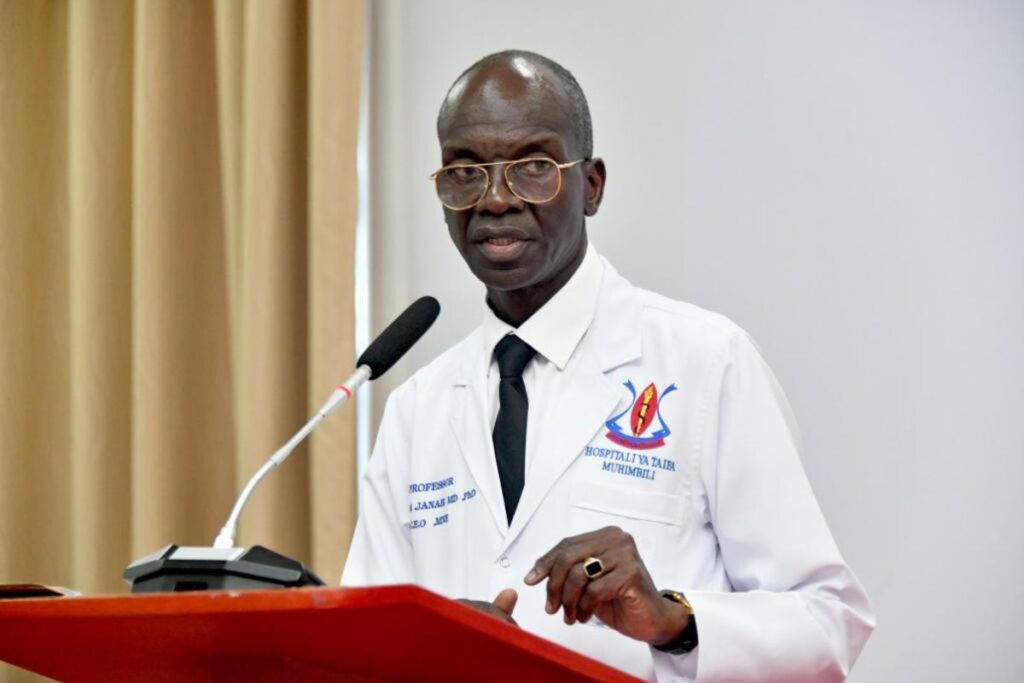Dar es Salaam. Tanzania's strategic diplomacy and high levels of political support were praised for Professor Janabi's successful election as the World Health Organization (WHO) regional director of Africa.
At the heart of the campaign was a team led by former president Jakaya Kikwete, which was strongly supported by President Samia Slu Hassan.
Health Minister Genista Magama, a key figure in the campaign, told citizens that the campaign harnessed President Samia's increased diplomatic influence and integrity with Tanzania's global development priorities.


“We have used election manifesto and national policy priorities to create platforms related to many countries, including SDGs, especially 5PS, people, planets, prosperity, peace, partnerships,” she said.
Minister Magama said the campaign followed a “4R strategy” of reconciliation, resilience, reform and reconstruction. At some point, she said that sometimes they may abandon calculated decisions, even though it means losing some votes for strategic interest.
“What really succeeded was the steady leadership of campaign chair Kikwete,” she pointed out.
The campaign was built on Tanzania's reputation for stability and leadership in health and development, and highlighted Professor Janabi's global experience, including his advice role during the 2014-2016 Ebola outbreak and his role in promoting a $363 million health system investment from South Korea.
The final push was made in Geneva, led by Foreign Minister Helmmud Tabitt Combo, with Health Ministers Genista Magama (mainland) and Nassol Mazri (Zanzibar). The delegation coordinated with former Mr. Kikwete through virtual sessions to improve last-minute lobbying.
“Embassies across Africa in Tanzania played a key role in mobilizing support. This was about not only Professor Janabi, but also Tanzania's awareness of global leadership,” Combo said.
Ambassador Hoise Tem, deputy permanent representative of Geneva, Tanzania, was also a central figure. Her experiences in Dr. Tulia Ackson's Inter-Parliamentary Union (IPU) campaign mean that she joined the effort early in December 2024 when Professor Janabi's name first came to mind.
“We started carefully to avoid early competition,” she said.
She added that by introducing Tanzania's health, education, environmental and economic advances, she helped to build a compelling case. “5PS gave our campaign a strong foundation. Tanzania was considered the forefront,” she said.
Former President Kikwete's face-to-face engagement with leaders from more than 20 countries proved instrumental. In Guinea, for example, he called for a historic bond that dates back to the time of Mwalimu Nyere. In Brazzavi's Congo, Professor Janabi's role in past Ebola reactions was a powerful factor. “Professor Janabi wasn't just a medical professional. He was on the forefront during past health crises and respected that,” Ambassador Wheys said. Other African leaders were shaken by Professor Janabi's career as well as his role as an advisor to both President Kikwete and Hassan on health issues.
The campaign team split the responsibility. Former President Kikwete, Minister and Ambassador conducted regional outreach, while Huisse coordinated engagement with 47 African ambassadors in Geneva.
“The biggest challenge was time. Professor Janabi was still working. In some countries, personal involvement was required before pledging support.
The campaign also faced logistical obstacles. “I had to travel from Ethiopia to France and then to the country I wanted. This required detailed planning and teamwork,” she said.
A special order from President Hassan directed all Tanzania ambassadors to engage with their African counterparts, ensuring that African member states were not left unreached.
This campaign used cultural diplomacy effectively. Support for Tanzania's liberation movement has been invoked in South Africa, Namibia and Mozambique, including references to symbols like the Mandela Road as markers of long-standing friendship. “These historical stories helped us to deepen our trust,” Temu said. Professor Janabi ultimately won 32 of the 47 votes. This achieved a team goal of 28-35. The result was a confirmation of Tanzania's diplomatic power and ability to bring together the continent.
“This is just the beginning. We must groom more Tanzanians for global leadership,” Temu said.
She said: “Professor Janabi was more than a candidate with a strong resume. He proved he could lead. Tanzania demonstrated that he could shape a global institution.


